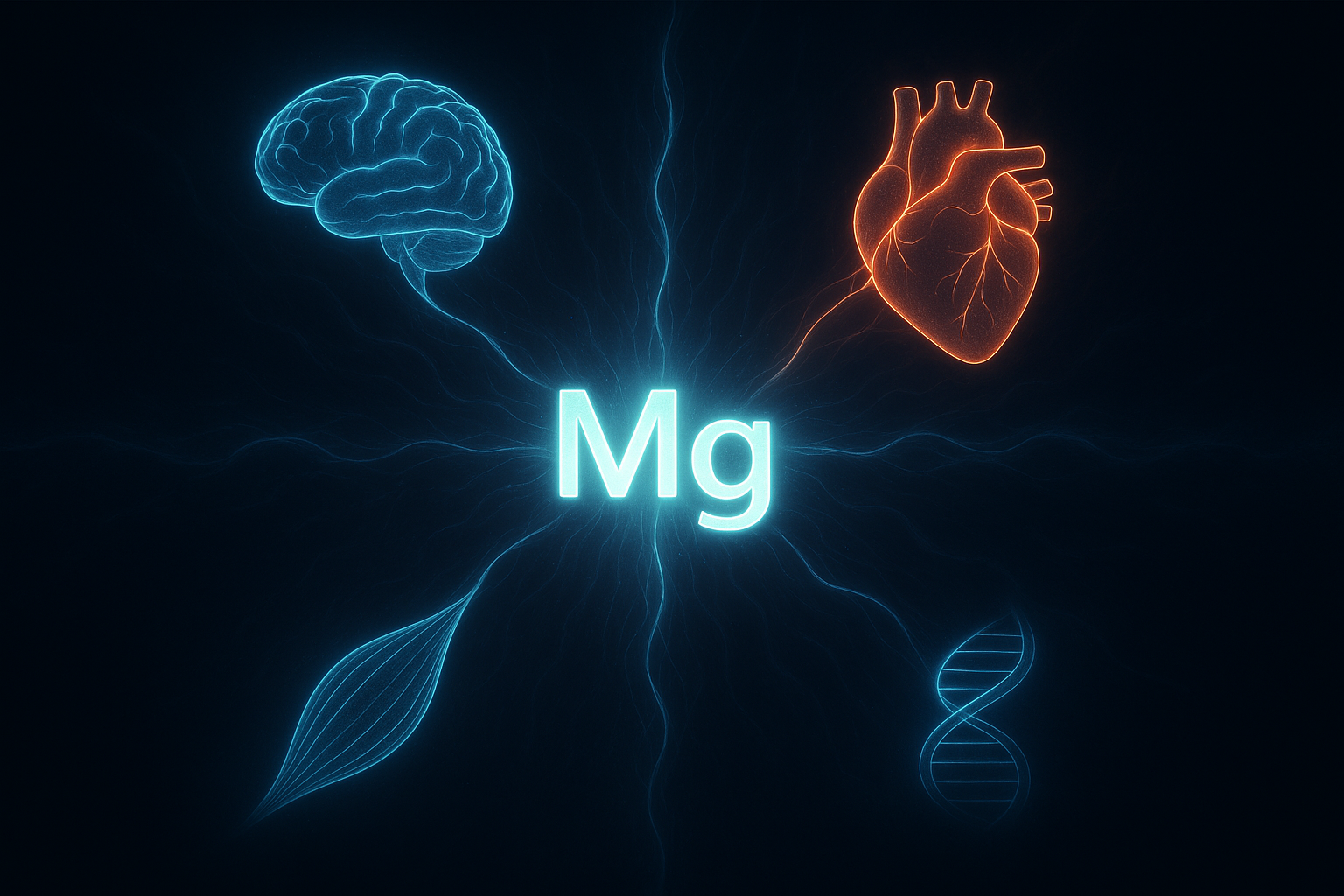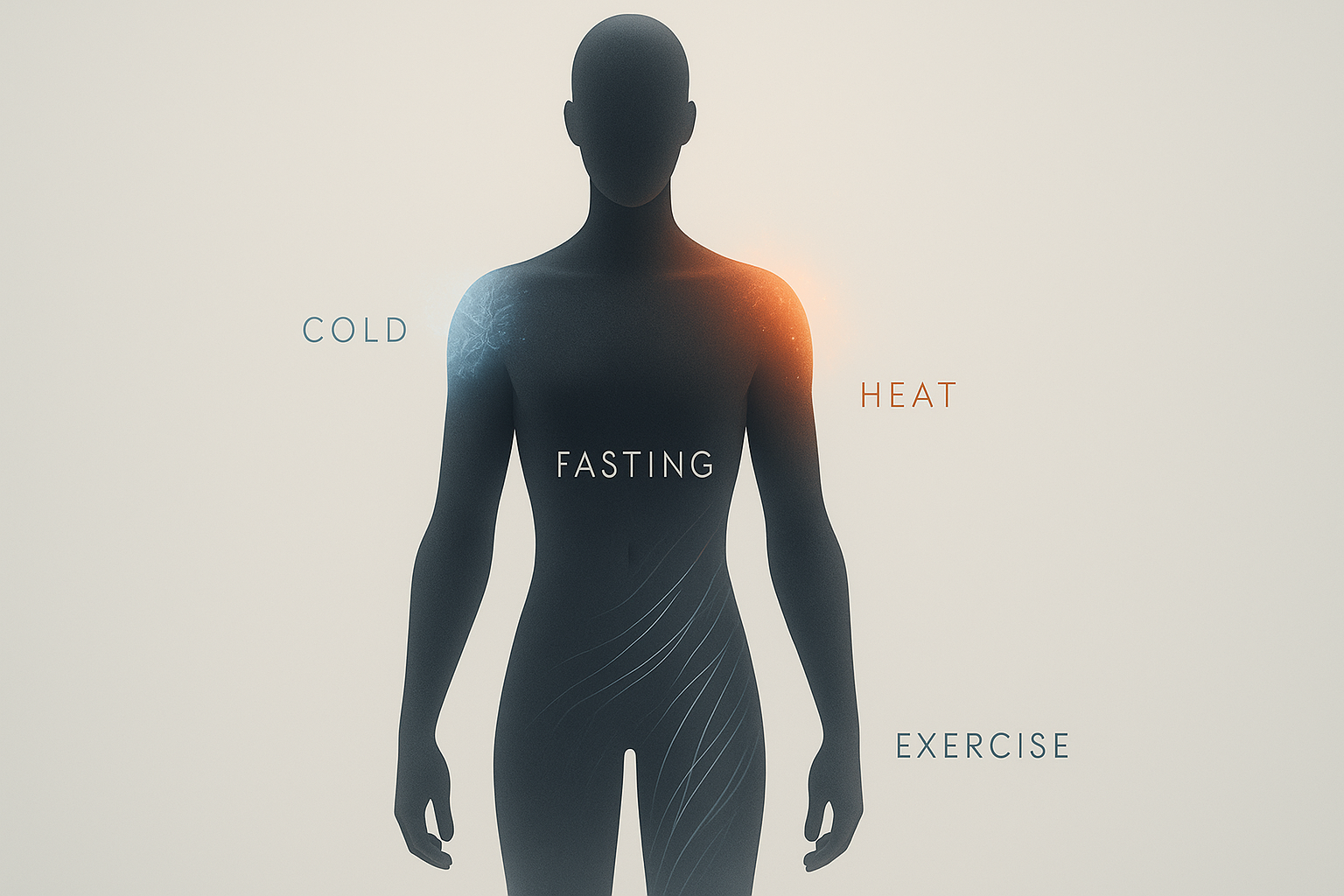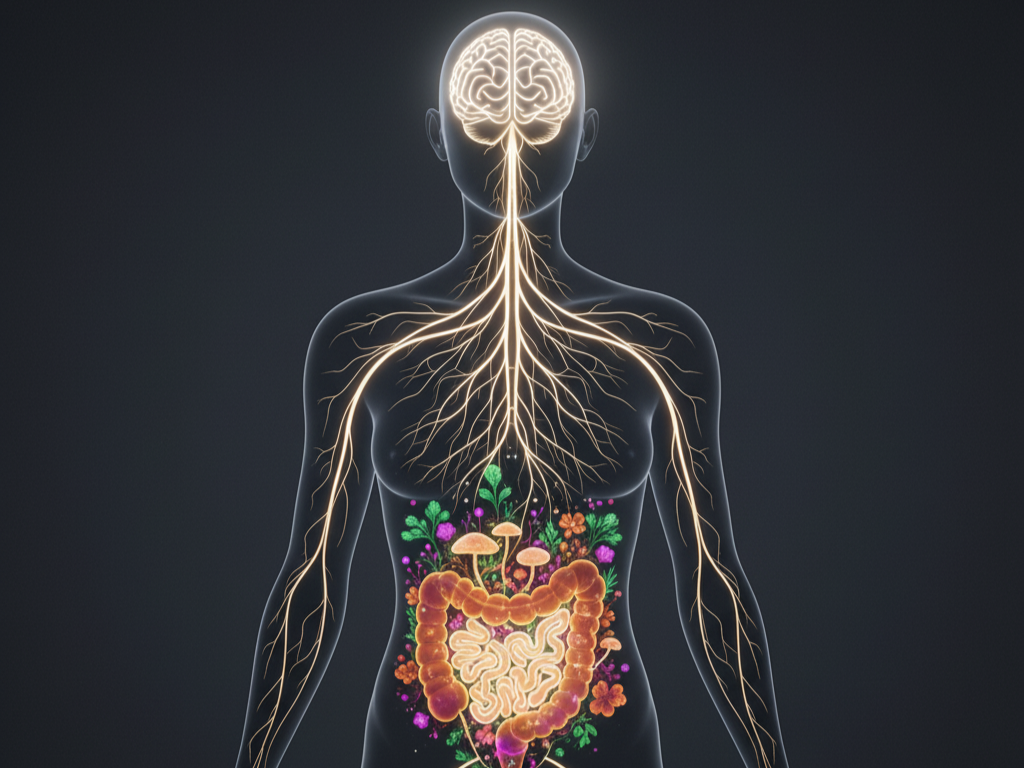Listen to the article as a podcast (beta)
- Beyond the Basics: While Sleep, Nutrition, and Emotional Balance are your foundational pillars, four "Supporting Pillars"—Hydration, Movement, Nature, and Connection—act as the glue that holds them together and amplifies their effects.
- Physiology First: Proper hydration is non-negotiable for cognitive function and energy, directly impacting your mood and ability to manage stress. The simplest habit is to start your day with water before anything else.
- Mind Over Muscle: The goal of daily movement isn't about athletic performance, but about mood regulation. Short bursts of activity, like a 10-minute walk, can boost mood-enhancing neurochemicals and improve mental clarity.
- Nature is a Prescription: Spending time in nature is a scientifically validated tool for lowering the stress hormone cortisol. Even small doses, like a weekly walk in a park, can have a significant physiological impact on your nervous system.
Key Takeaways
You’ve committed to improving your sleep. You’re focusing on nourishing your gut. You’re learning to manage your stress. You have built the foundation with the three main pillars of well-being (which we cover in other articles in this series). But what ties it all together? What elevates your efforts from a series of tasks to a truly integrated, thriving lifestyle?
The answer lies in the Supporting Pillars: a set of simple, daily habits that act as a powerful catalyst. These aren’t complex new routines to add to your schedule. They are the small, conscious choices that enhance the effectiveness of everything else you do. They are the glue.
Let's explore the four most impactful supporting habits that can elevate your well-being, starting today.
The Glue to a Thriving Life: 4 Habits That Amplify Your Well-being
Hydration: The Spark of Cellular Energy

We often underestimate the power of water, viewing it merely as a way to quench thirst. In reality, hydration is the bedrock of your body’s electrical and chemical processes. Every cell in your body requires water to function, and even mild dehydration can significantly impact your physical and mental performance.
The Science: Dehydration has been shown to impair cognitive function, reduce focus, and negatively impact mood. When your brain lacks sufficient water, it has to work harder to perform the same tasks. This can manifest as brain fog, fatigue, and even heightened feelings of anxiety.
The Actionable Habit: The "Water First" Rule.
Before you have your morning coffee, tea, or even look at your phone, drink a full glass of water. This simple act rehydrates your system after a night of sleep, kickstarts your metabolism, and provides your brain with the resources it needs for a clear and focused start to the day.
Movement: Your Daily Mood Booster

When we think of "exercise," we often picture intense, time-consuming workouts. But when it comes to supporting your overall well-being, the most powerful form of movement is the one you do consistently. The goal here is not about transforming your body, but about transforming your state of mind.
The Science: Physical activity, even a brisk walk, triggers the release of endorphins—neurochemicals that act as natural mood elevators. It also boosts a protein called Brain-Derived Neurotrophic Factor (BDNF), which is like fertilizer for your brain cells, supporting learning, memory, and resilience to stress.
The Actionable Habit: The "Movement Snack."
Incorporate short "movement snacks" into your day. Instead of scrolling on your phone during a break, take a 10-minute brisk walk. It’s not about the duration; it’s about breaking up sedentary periods and giving your brain a chemical reset. This simple act can be more effective at boosting energy and focus than a cup of coffee. For the best results, try leaving your phone behind on this short walk.
Nature: The Ultimate Cortisol Reset

Our nervous systems did not evolve for concrete jungles and digital notifications. We are biologically wired to find calm in natural environments. Spending time in nature is not an indulgence; it's a science-backed prescription for stress reduction.
The Science: Studies have shown that spending as little as 20 minutes in a natural environment can significantly lower levels of the stress hormone cortisol. This is due to a phenomenon known as "soft fascination," where our attention is held gently by natural patterns (like leaves rustling or water flowing), allowing our over-stimulated brains to rest and recover.
The Actionable Habit: Schedule a Weekly Nature Appointment.
Once a week, schedule a non-negotiable appointment with nature. This could be a 30-minute walk in a local park that also covers your "movement snack." If your daily schedule is tight, dedicate a larger block of time on a single day, like spending a few hours in nature on the weekend. Leave your phone behind or put it on airplane mode. This simple ritual can reset your baseline stress levels.
Connection: The Scientific Buffer to Stress

In our hyper-individualized world, it’s easy to overlook our most powerful biological tool for resilience: meaningful human connection. Social relationships are not just a source of emotional comfort; they are a physiological necessity for long-term health.
The Science: Positive social interactions trigger the release of oxytocin, often called the "bonding hormone." Oxytocin has a powerful calming effect on the nervous system and directly counteracts the effects of cortisol. In fact, research consistently shows that the quality of a person's social relationships is one of the strongest predictors of their long-term health and longevity.
The Actionable Habit: The "Connection Ritual."
Establish a small, consistent ritual with someone you care about. This could be a weekly phone call with a family member, a bi-weekly coffee with a friend, or a dedicated "no-screens" dinner with your partner. The key is consistency, creating a reliable source of positive social interaction that your nervous system can count on. If you have a partner, a long, calm, meaningful hug can be a powerful ally.
Conclusion: It's All Connected
These four habits—Hydration, Movement, Nature, and Connection—are not isolated wellness tasks to be checked off a list. They are the threads that weave your foundational pillars together into a resilient and vibrant tapestry of health. Better hydration improves your energy for movement. Movement clears your head, making social connection more rewarding. Time in nature calms your nervous system, improving sleep. Each habit feeds the others, creating an upward spiral of well-being.
When combined with the habits from our other articles in this series, you create a powerful foundation for your health and overall wellness. You will be able to truly say you are living a healthy lifestyle.
I work in an office all day. How can I get more nature?
Start small. Bring a potted plant to your desk. Change your computer's wallpaper to a beautiful landscape. If you have a window, take a few minutes each day to simply look outside. Even these small "doses" of nature can have a positive effect. And try to dedicate a few hours on a day off to immerse yourself in a truly natural setting.
Does it matter what kind of movement I do?
For the purpose of mood and energy, the best movement is the one you enjoy and will do consistently. Walking is one of the most accessible and effective options. The key is to get your heart rate up slightly and engage your muscles.
I drink a lot of coffee and tea. Does that count towards hydration?
While they contain water, caffeinated beverages are also diuretics, meaning they can cause you to lose water. They don't hydrate as effectively as plain water. Think of them as a separate part of your routine, not a replacement for your primary water intake.
I'm an introvert. Do I still need social connection?
Absolutely. Connection isn't about being the life of the party. It's about having a few high-quality, trusted relationships where you feel seen and supported. For an introvert, a deep one-on-one conversation can be far more powerful than a large social gathering.













